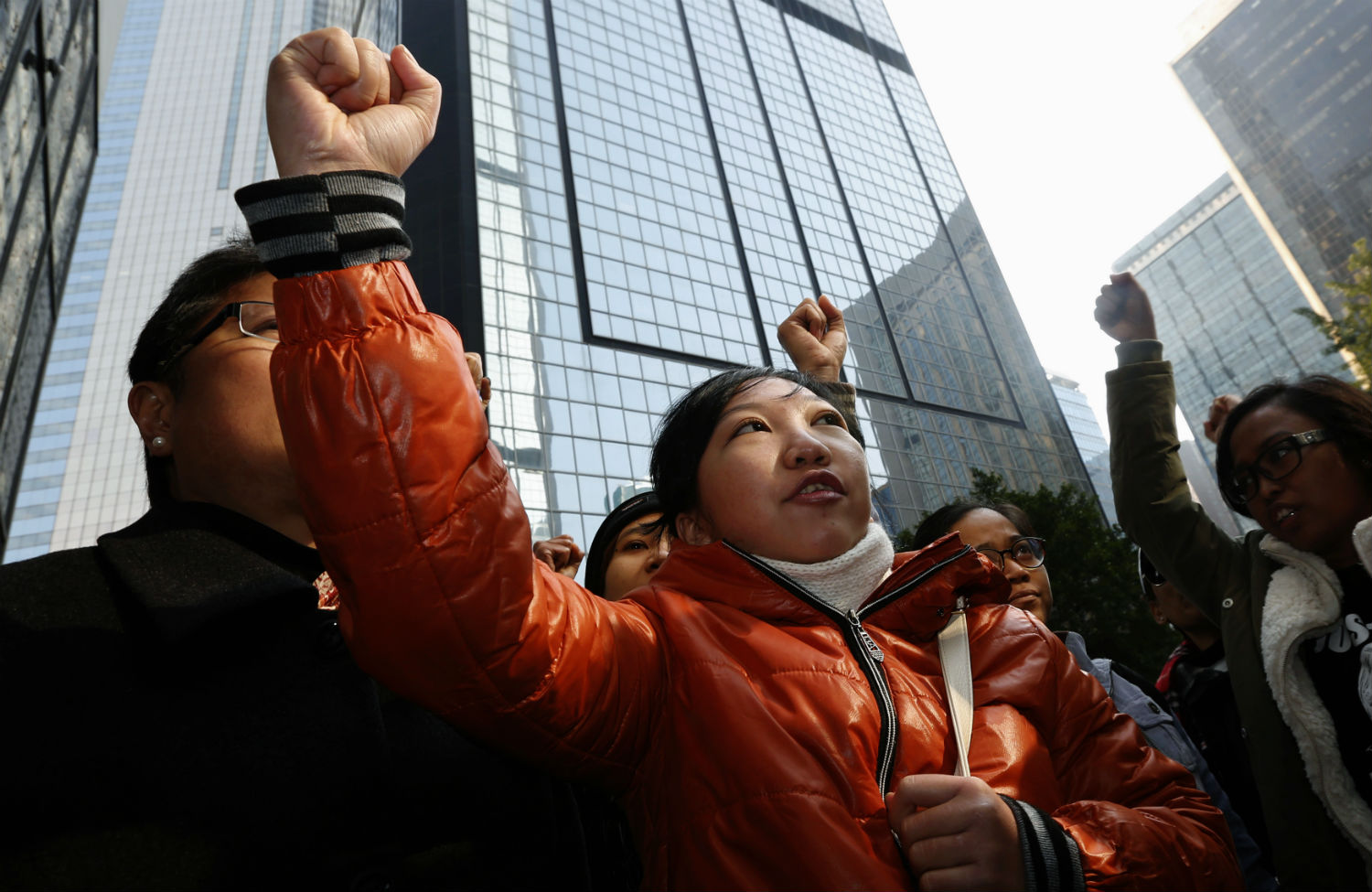
How a Migrant Worker’s Torture Exposed Hong Kong’s Underground Economy How a Migrant Worker’s Torture Exposed Hong Kong’s Underground Economy
Domestic workers are demanding an end to slavery-like conditions in the homes of the Hong Kong rich.
Feb 11, 2015 / Michelle Chen

These Motel Rooms Are the Last Resort for Families Without Homes These Motel Rooms Are the Last Resort for Families Without Homes
A critical lack of affordable housing is turning overpriced motels into long-term shelter.
Feb 11, 2015 / Leighton Akio Woodhouse
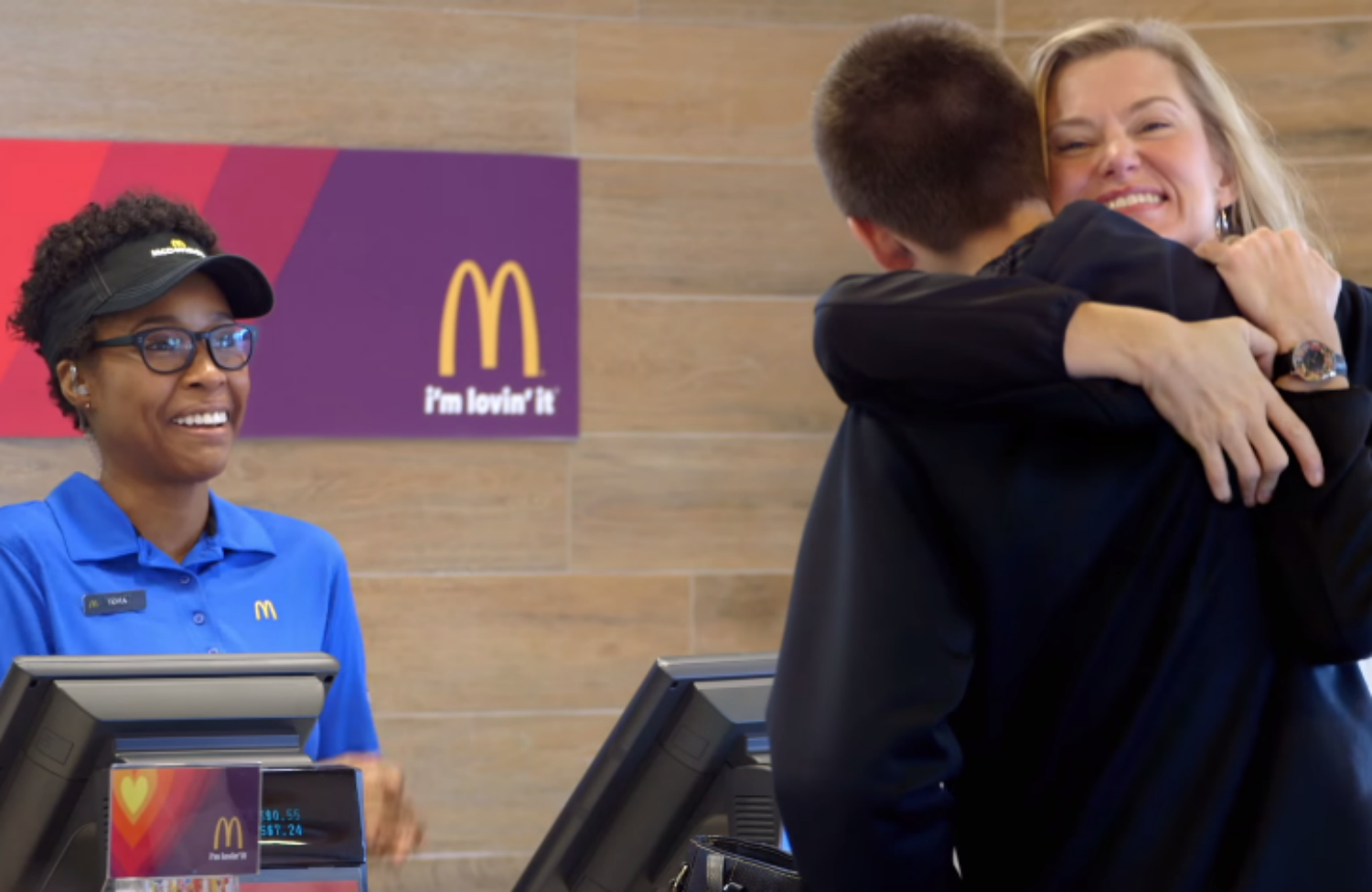
A Job at McDonald’s Now Includes Singing and Dancing on Demand A Job at McDonald’s Now Includes Singing and Dancing on Demand
Under the new “Pay With Lovin’” campaign, McDonald’s employees won’t just have to do their jobs; they’ll have to put on a performance for custom...
Feb 2, 2015 / Bryce Covert
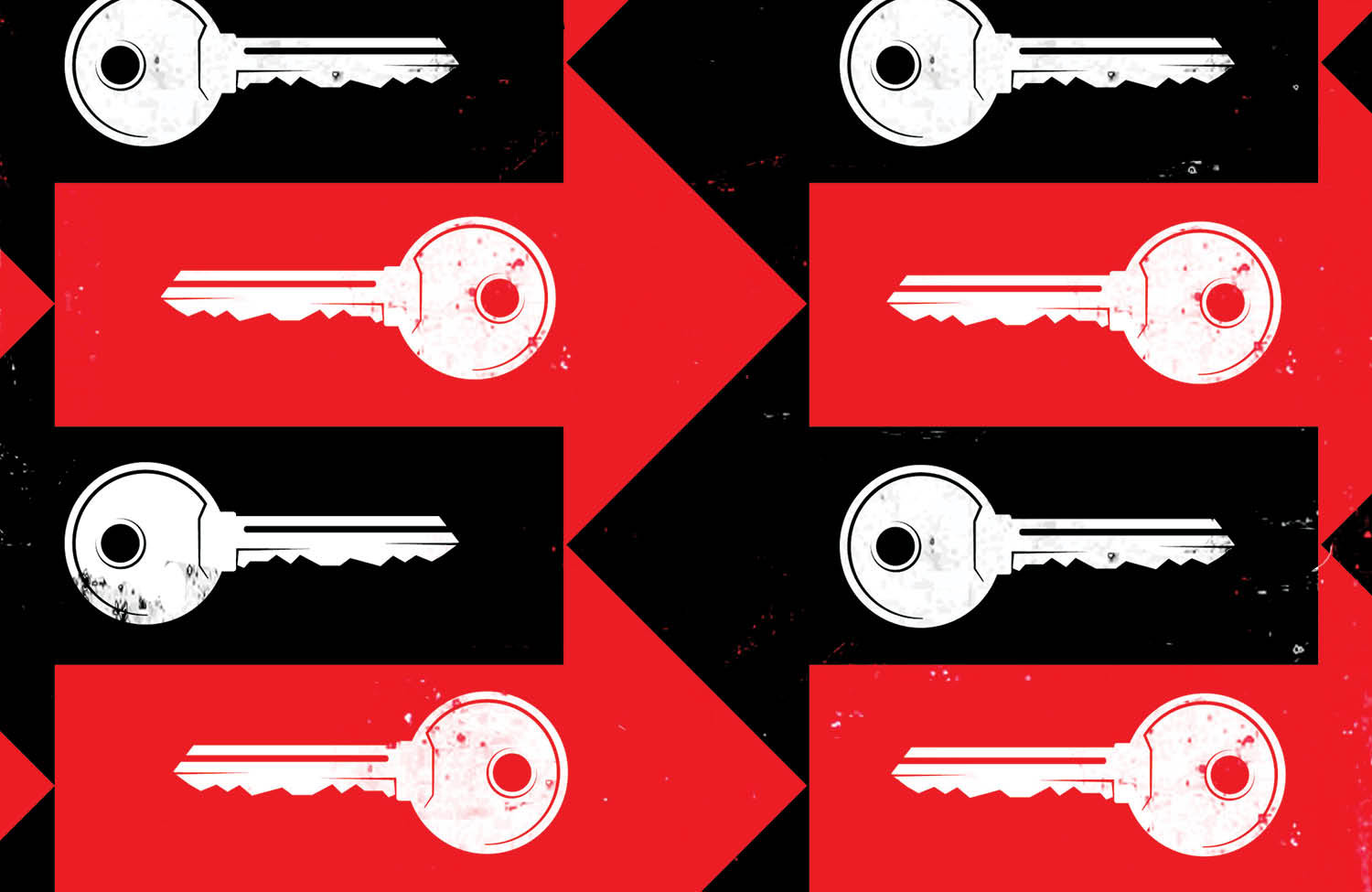
What the Sharing Economy Takes What the Sharing Economy Takes
Uber and Airbnb monetize the desperation of people in the post-crisis economy while sounding generous—and evoke a fantasy of community in an atomized population.
Jan 27, 2015 / Feature / Doug Henwood
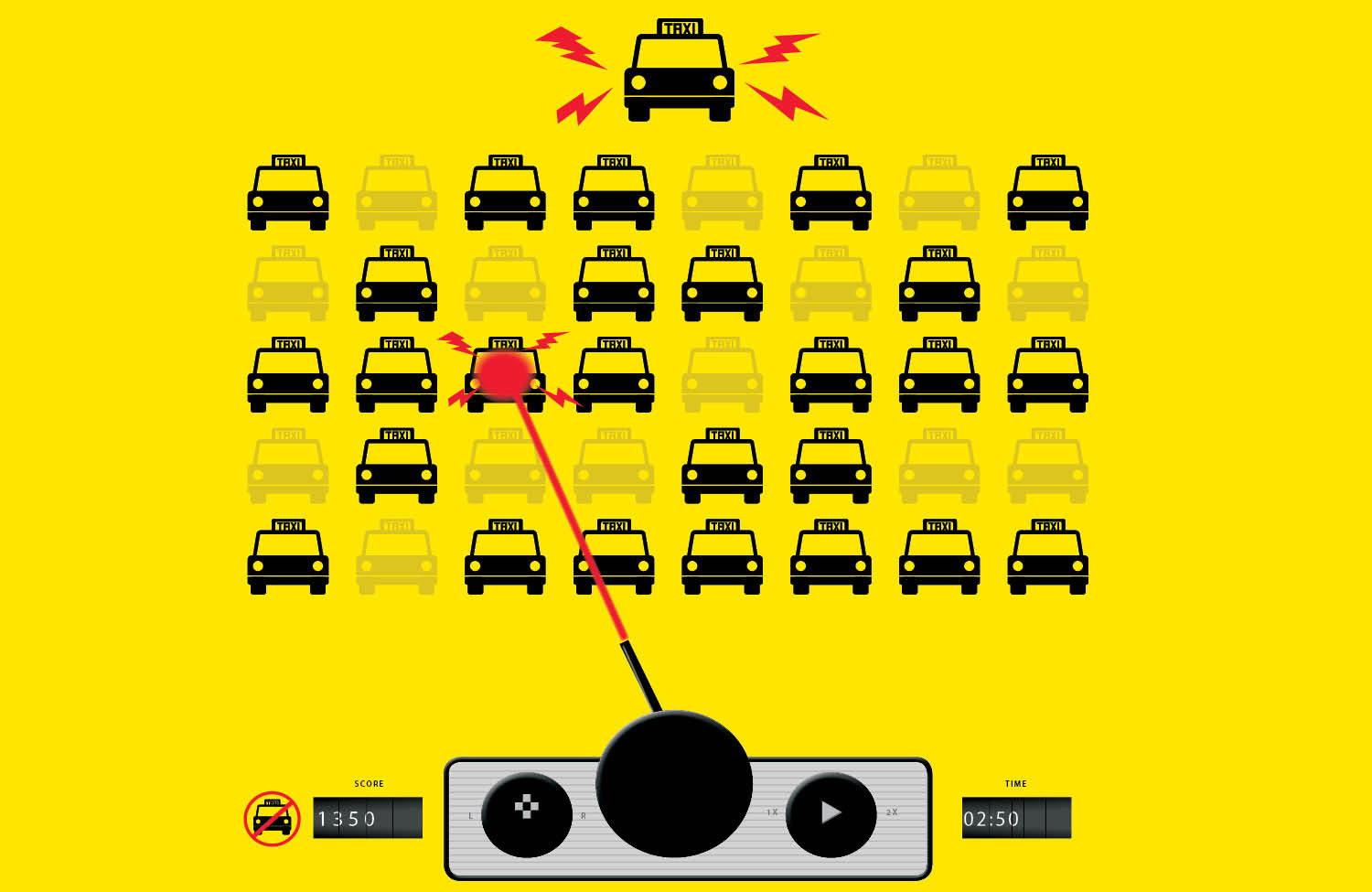
Uber and the Taxi Industry’s Last Stand Uber and the Taxi Industry’s Last Stand
What the rise of the app-based cab service says about the future of work in America

Gaza’s Labor Unrest Is Reaching a Boiling Point Gaza’s Labor Unrest Is Reaching a Boiling Point
As the unity government wrangles over management of the devastated Gaza Strip, government workers are striking for their overdue wages.
Jan 20, 2015 / Michelle Chen
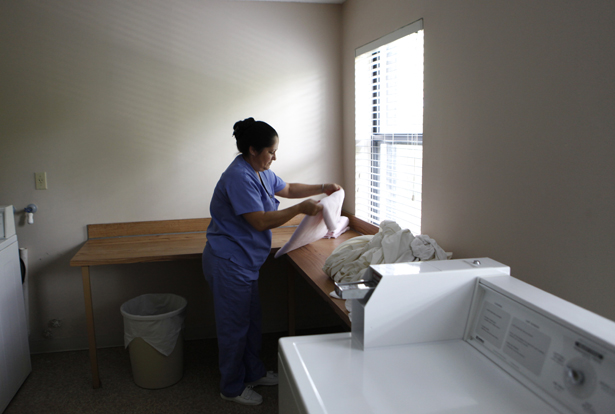
Judge Rules That Home Care Workers Are Really Just ‘Companions’ Judge Rules That Home Care Workers Are Really Just ‘Companions’
These workers have grueling jobs—but they’re still not eligible for minimum wages or overtime pay.
Jan 16, 2015 / Michelle Chen
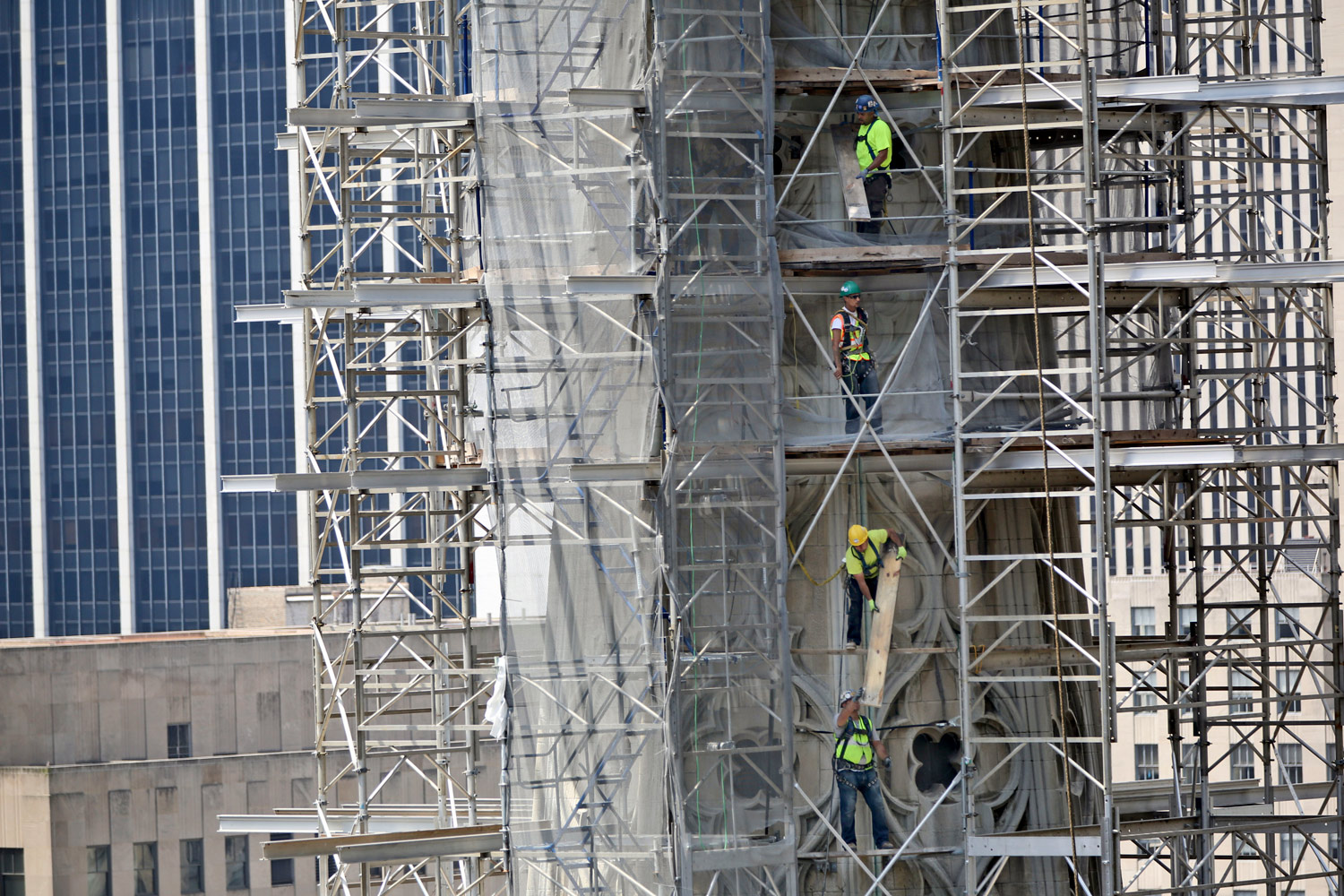
Construction Jobs Are Getting Safer—but Not for Latinos Construction Jobs Are Getting Safer—but Not for Latinos
We’ve relegated Latino immigrants to the most dangerous jobs—and left them few effective ways to challenge mistreatment.
Jan 14, 2015 / Michelle Chen

America’s Workplaces Are Hostile to Families America’s Workplaces Are Hostile to Families
To fix social problems, we need to stop looking to marriage, and start creating more equitable public policy.
Jan 7, 2015 / Michelle Chen
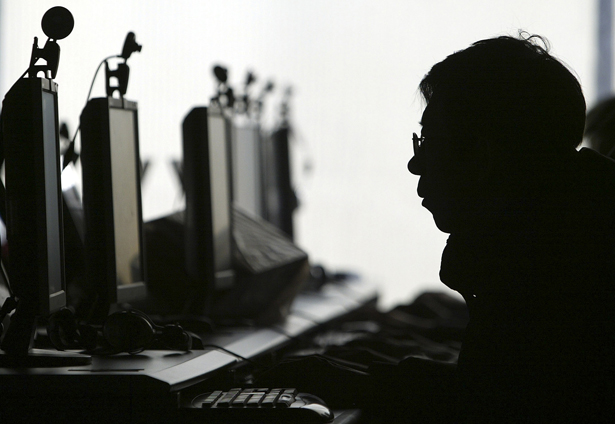
Is Crowdsourcing Bad for Workers? Is Crowdsourcing Bad for Workers?
“Cloud labor” sites like Crowdflower may be the face of the future—but their wages are stuck in a sweatshop past.
Jan 5, 2015 / Michelle Chen
